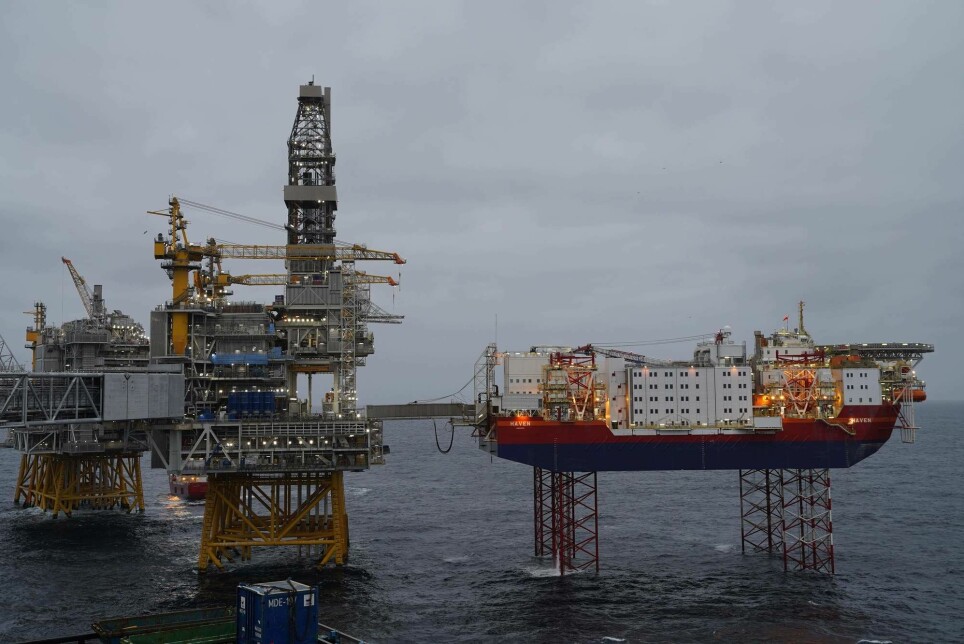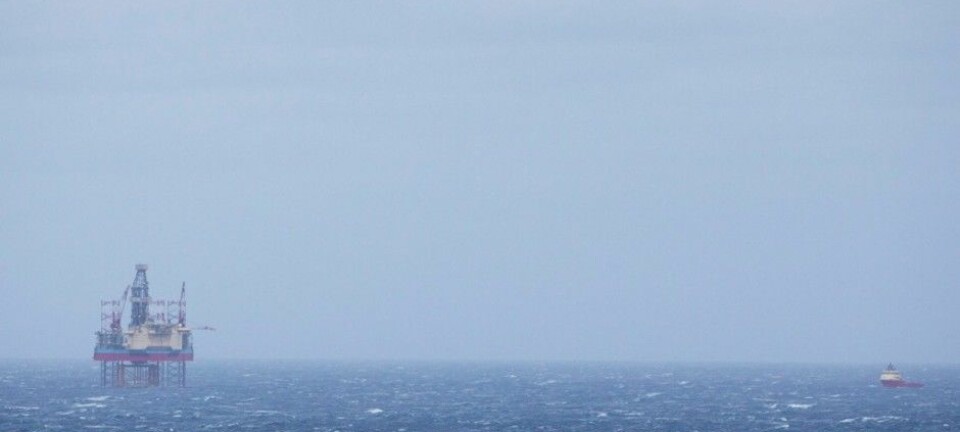
Reduced Norwegian oil exports will reduce global emissions according to researchers
Other countries will not follow suit and produce enough oil to close the gap, the researchers say. Some Norwegian politicians and the oil industry however beg to differ.
Upcoming parliament elections this September have placed the debate on climate change and Norwegian oil production firmly on the map in recent weeks.
Does it matter if a small player like Norway, which accounts for no more than 2 per cent of the total global production, reduces or stops its extraction of oil?
Absolutely, say the researchers, the Green Party and other parties mainly on the left side of politics.
Not at all – it may even make matters worse, as Norwegian oil is extracted in such a clean way as opposed to a lot of other oil, say politicians from among others the Labour Party and the Conservative party (currently in power), and the oil industry.
And so the debate continues. But some researchers are quite clear in their conclusion.
Norwegian oil will not be entirely replaced
A group of 12 researchers writing an op ed in the Norwegian national newspaper Aftenposten (link in Norwegian) recently firmly rejected the claim that Norwegian oil will simply be replaced by dirty oil – making the reduction of Norwegian production a harmful measure in terms of climate change.
Although research does suggest that a reduced supply of oil from Norway will be somewhat replaced by other producers, the researchers write, they will not match the entire loss of production.
And when less oil is extracted, less oil is used.
“Most likely, reduced Norwegian exports will lead to reduced global emissions, also when we take into account that some of the increased production in other countries will have higher emissions from their production”, the researchers state.
Tina Bru, minister of petroleum and energy, is however not convinced.
“A complete dead end”, she calls the strategy, as quoted in newspaper Aftenbladet (link in Norwegian).
“I believe we will gain very small reductions in emissions at a high cost. Reducing oil extraction in Norway will mean the loss of very many jobs, it will dramatically affect our total value creation and the income of the oil fund. Reducing Norwegian oil production is therefore the most expensive climate measure we can implement”, the minister states.
Focus on the supply side
A central piece of research in support of the conclusion that reducing Norwegian oil will in fact benefit the planet, is a discussion paper from Statistics Norway written in 2013 and subsequently published as an article in the Energy Journal in 2017, Climate policies in a fossil producing country (link in English).
According to this research, the conventional way of reducing CO2 emissions is by focusing on the demand-side, introducing measures to reduce consumption of fossil fuels. Through calculations and analysis however, the researchers find that Norway should rather focus more on the supply side and reduce Norwegian extraction of oil. This they claim, will cost less than measures suggested to reduce demand, in order to reach stated goals of reduced emissions.
Because even though Norway’s oil production on a global scale is small, the already mentioned two per cent, this equals 500 million tonnes of CO2 when consumed – which amounts to about ten times as much as the total Norwegian emissions.
Although such calculations always have their uncertainties, the researchers write that “the conclusion that a majority of the global emission reductions should be taken through supply side measures, is quite robust”.
Three of the researchers behind the article, are also part of the group of researchers behind the recent op-ed. The conclusion from 2013 thus holds up even today, they assure.
Climate report-gate
When talking about this research in a televised political debate recently, Green Party politician Une Bastholm was confronted by show host Fredrik Solvang with a new report which, he claimed, finds the exact opposite.
Quotes from the report shared online state that: “According to Rystads analysis, reductions may at worst contribute to increased global emissions. This is because production cuts in Norway largely will be replaced by other producers, and thus give a smaller reduction in oil consumption.” The report also highlights that Norwegian gas transported through pipelines to Europe has far lower emissions than gas from Russia and the USA, as well as coal.
The report in question is written by Rystad Energy, an “independent energy research and business intelligence company”. What was not made clear during the televised debate, however, was that the report is not yet published, and that it was commissioned and paid for by The Norwegian Oil and Gas Association.

When confronted with the fact that this was not made clear in the debate, Editor of the news division of the national broadcaster NRK, Knut Magnus Berge, responded to e24.no (link in Norwegian) that “it’s not a secret that Rystad delivers analysis to the oil industry, so this is a question of how far we need to go in regards the details”.
“This is insane. Fredrik Solvang used an unpublished report written on demand by the oil lobby in order to undermine the message of Une Bastholm live on TV. A frightening example of the power of the oil lobby and medias uncritical attitude”, Green Party politician Eivind Trædal wrote on Twitter (link in Norwegian).
Truls Gulowsen, director of The Norwegian Society for the Conservation of Nature, says to e24.no that he views the report as an election strategy.
“I would think that Norwegian oil and gas have worded this commission in such as way that allows them to get the results that they wish, namely to keep on searching for more oil and gas. But we will be able to evaluate this when and if the report becomes public”, he said.
According to e24.no, the Rystad Energy-report will be published in about a weeks’ time.
An important difference between the analysis ordered by the oil lobby and the 2013-Statistics Norway analysis, is that the former has made calculations for oil and gas, while Statistics Norway only looked at oil production.
Lead the way for international efforts
The 12 researchers behind the op ed in Aftenposten admit that Norway is a small country. Any single Norwegian measure will have a limited effect on global warming as such.
What they suggest then, is that Norway should lead the way toward greater cooperation internationally on reducing extraction and production.
“Norway could play a potentially important role by initiating conversations with other fossil fuel producers about this”, they write.
That political decisions on what to do or not to do are difficult, is not an excuse to ignore the research in the field, and make it sound like Norwegian oil somehow is good for the climate, they firmly state:
“Existing research does not support that claim”.
———
This article was updated at 13:50 on 27 August to add the information that the SSB discussion paper was published in a journal in 2017, with the link to this publication added.


































